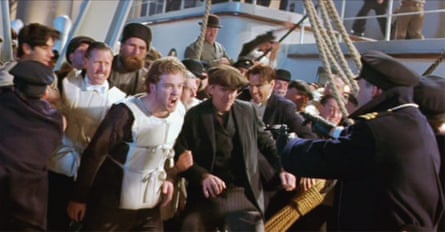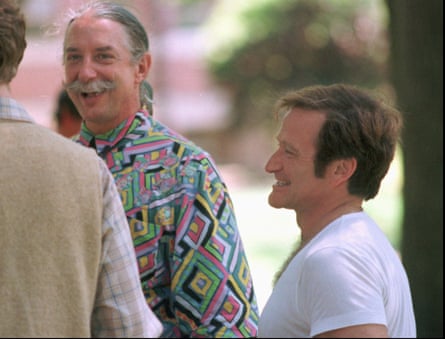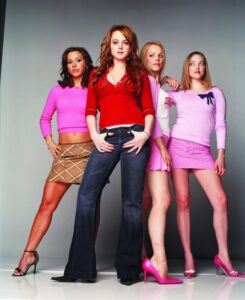I
In James Cameron’s Titanic, as the ship sank into the cold waters of the Atlantic, First Officer William Murdoch pulled out his gun. The passengers were fighting for spots in the limited number of lifeboats, and Murdoch was trying to maintain order. In a state of panic, he shot into the crowd. An Irish worker named Tommy Ryan fell to the ground, supported by a friend as he died from his wounds on the sinking deck. Realizing the gravity of his actions, Murdoch gave a final salute to a colleague before turning the gun on himself.
In 1997, when the blockbuster was released in theaters, audiences were captivated by this thrilling scene. However, the small town of Dalbeattie, Scotland, where the actual Murdoch grew up, did not share the same enthusiasm. A plaque on the town hall still praises his “heroism,” but his family publicly denounced the movie for its portrayal of Murdoch. His nephew, Scott Murdoch, stated that the depiction was fabricated for dramatic effect and that there was no evidence of his uncle committing any murders. The backlash was so intense that the executive vice president of 20th Century Fox personally traveled to Dalbeattie to apologize. As a gesture of remorse, a £5,000 check was presented to the family. Even director James Cameron expressed regret in the DVD commentary, admitting that it was a mistake to portray a real person in such a manner.

After 25 years, Hollywood has still not resolved the ethical dilemma faced by Cameron when creating a film based on real people and events. How much do filmmakers owe to those whose stories are used as inspiration for their successful films? Is there a boundary that is sometimes crossed between a director’s desire to tell an entertaining story and their responsibility towards the individuals, living or deceased, whose experiences are being used for storytelling? According to Zach Baylin, the Oscar-nominated screenwriter of King Richard and the upcoming Bob Marley biopic One Love, this tension has long existed in Hollywood and was recently brought to light again during a dispute over the Todd Haynes film May December.
The inspiration for May December came from the story of Mary Kay Letourneau, a 34-year-old American teacher who was arrested in 1997 for having a sexual relationship with her 12-year-old student, Vili Fualaau. After serving a six-year prison sentence, Letourneau and Fualaau got married and had two children. The film fictionalizes many aspects of their marriage and introduces Natalie Portman as Elizabeth Berry, an actress set to play Letourneau in a movie about their lives. According to the film’s screenwriter Samy Burch, the story is based on real-life events, similar to the TV show Succession. However, Fualaau, the real-life subject of the film, expressed his offense towards the project and its lack of respect for his story in an interview with the Hollywood Reporter earlier this month.
Fualaau is not the only one speaking out against a movie about his family’s life during this awards season. Lisa Marie Presley supposedly expressed to Sofia Coppola that she found the screenplay for her latest film, Priscilla, to be “shockingly vengeful and contemptuous” and portraying Elvis Presley as “a predator”. Charles Oppenheimer, the grandson of the famous nuclear physicist featured in Christopher Nolan’s Golden Globe-winning drama, also recently shared his discomfort with the film’s depiction of his grandfather attempting to poison a tutor with a potassium-cyanide-laced apple. He stated, “That is a grave accusation and a distortion of history. No one who knew Robert Oppenheimer during his lifetime, whether friend or foe, ever heard of such a thing.”
Exclude newsletter advertisement
after newsletter promotion
In an interview with the Guardian, Oppenheimer expressed his thoughts on the film and his involvement with it. He stated that, overall, he was pleased with the movie and believes it is a valuable starting point for understanding who Robert Oppenheimer was. He also shared his joy over the attention the film has brought to his non-profit organization, The Oppenheimer Project, which focuses on promoting nuclear energy and reducing nuclear weapons. However, Oppenheimer also expressed a desire for Hollywood to involve family members in the process, as it can feel disconnected and like their family story is being exploited for profit without their input.
These types of controversies are not uncommon. The 2018 Academy Award winner for Best Picture, Green Book, faced backlash from the family of its subject, Dr. Don Shirley, who accused the film of misrepresenting the relationship between the renowned Black pianist and his chauffeur. Similarly, Quentin Tarantino was publicly criticized by Bruce Lee’s daughter, Shannon, for his portrayal of the martial arts legend in his 2019 film Once Upon a Time … in Hollywood. Tarantino’s response, which included calling Lee “arrogant” and telling his critics to “go suck a dick,” was not exactly tactful.

In Hollywood’s past, there have been many controversial examples. One of these is Hunter Doherty “Patch” Adams, an American doctor and activist who was famously portrayed by Robin Williams in a 1998 film based on his life. Adams has dedicated his life to promoting a radical approach to healthcare that is free for all and focuses on the well-being of patients. However, he was disappointed with how the movie portrayed him as simply a funny doctor. At 78 years old, Adams expressed feeling embarrassed by the film. He only agreed to it because he hoped it would help him raise funds to build a hospital. He believed that casting Robin Williams would attract a wide audience, but instead he felt misrepresented. In 2012, Adams explained that movies are made to make money and humor sells more tickets than love, peace, or justice. As a result, people only remember him as the funny doctor from the film and not as a doctor fighting against capitalism.
According to Baylin, there is no one rule for how biopics should portray their subjects. For example, the film The Social Network, which Mark Zuckerberg, the subject of the film, found hurtful, is vastly different from the controversy surrounding Green Book. While one film sheds light on the misogynistic foundations of Silicon Valley, the other caused discomfort for a family whose loved one’s name was used to tell a sanitized version of race relations in the US. In his own work, Baylin likes to collaborate closely with his subjects and/or their families.

“According to the source, this can be extremely useful because in ideal situations, individuals will have trust in you, confide in you, and provide valuable insights into their relationships and circumstances that cannot be obtained from historical records. However, there is also a natural inclination to protect the story of their loved one and present them in a certain light to the public. Therefore, there may be a negotiation between advocating for the film’s best interests and respecting the family’s desires for how their loved one is depicted. Nonetheless, based on my personal experience, involving the subjects in the film tends to result in a better final product.”
There is a growing trend of filmmakers choosing to work closely with the subjects or families of their subjects for their films, such as Bradley Cooper’s Maestro, JA Bayona’s Society of the Snow, and Ava DuVernay’s Origin. This may indicate a shift in Hollywood’s approach to portraying real people’s stories, as there have been instances in the past where the industry has exploited them instead. Some argue that it is about time for this change to happen, as cinema has a tendency to cement certain perceptions that are hard to break. As William Murdoch’s nephew expressed after 20th Century Fox’s apology in Dalbeattie, there is a concern that the film industry may continue to misrepresent real people even after the controversy dies down. The question of the responsibilities of filmmakers towards their real-life inspirations, as famously sung about in Titanic’s theme song, is one that will likely remain ongoing.
Source: theguardian.com

















